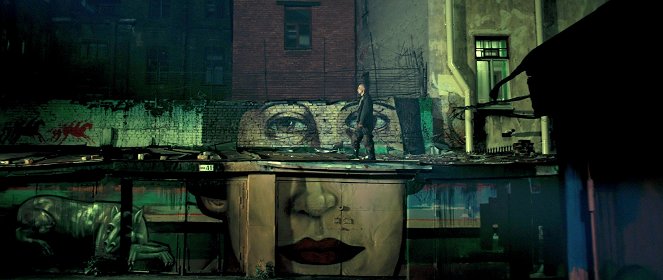Photographie:
Mart TanielActeurs·trices:
Yuriy Borisov, Timofey Tribuntsev, Aleksandr Yatsenko, Nikita Kukushkin, Vladimir Epifantsev, Anastasiya Ukolova, Natalya Kudryashova (plus)VOD (1)
Résumés(1)
URSS, 1938. Au pic de la Grand Terreur, Staline purge ses propres rangs. Se sachant à son tour condamné, le Capitaine Volkonogov s’échappe. Dans sa fuite, il est frappé d’une vision : pour sauver son âme, il devra se confronter aux familles de ses victimes et obtenir leur pardon. (KinoVista)
Critiques (3)
The story is set in 1938 in Leningrad, which is presented as an ugly industrial hotbed of Party doctrine. Captain Volkonogov helps coerce innocent enemies of the state into false confessions in the "inquisition trials", but his conscience catches up with him and he decides to take the radical step of fleeing and seeking forgiveness from the survivors to bring him to an afterlife paradise. As we watch, several sources of inspiration emerge: the redemption motif recalls the Hungarian film Son of Saul, while the chase line, with a ruthless Major hot on the heels of the Captain, is at times reminiscent of Jason Bourne's evasive skills. In its description of that crazy time, when everyone was a potential traitor with a bullet ready to pierce their head, the film is cynical, harsh and black-humored. At the scene where a local "legend" demonstrates how he can execute forty people a day with one bullet for each, we feel the urge to grin at the dark absurdity and shudder at the same time. It's a strange hodgepodge of genres at times, and the script has holes in its logic, but at two hours Captain Volkonogov Escaped has excellent pacing and offers a fresh alternative to its conservative Hollywood competitors.
()
It's not that I didn't notice any flaws – they were certainly there. However, they didn't bother me as much, because I liked the film's message. The era of Stalinist purges was undoubtedly a harrowing experience, even for the toughest individuals, and those who didn't harbor the right level of paranoia often didn't survive it. The filmmakers skillfully captured the raw and bleak atmosphere of the period, which surprisingly resonated with me, creating an incredibly unsettling experience. Now, to avoid any confusion, when I say "unsettling experience," I mean it as a compliment. The narrative pulled me in, delivering one gut-wrenching moment after another without giving me a chance to catch my breath. The film truly captivated me and I'd compare it to the similarly intense Dear Comrades!. / Lesson learned: It's better to face a bullet in the head than tuberculosis in the lungs.
()
A deftly grasped update of Russian fear, where the ubiquitous bogeymen are no longer men in hats hiding in cars, but pimply bald men in tracksuits. I am amused by the fact that the Stalinist period of the Soviet Union is such an incomprehensibly bizarre stage of history that everyone hides stories from it in comedies, unreliable narrators, or, as in this case, in a surreal red airship over your head.
()
Photos (16)
Photo © Memento International


Annonces